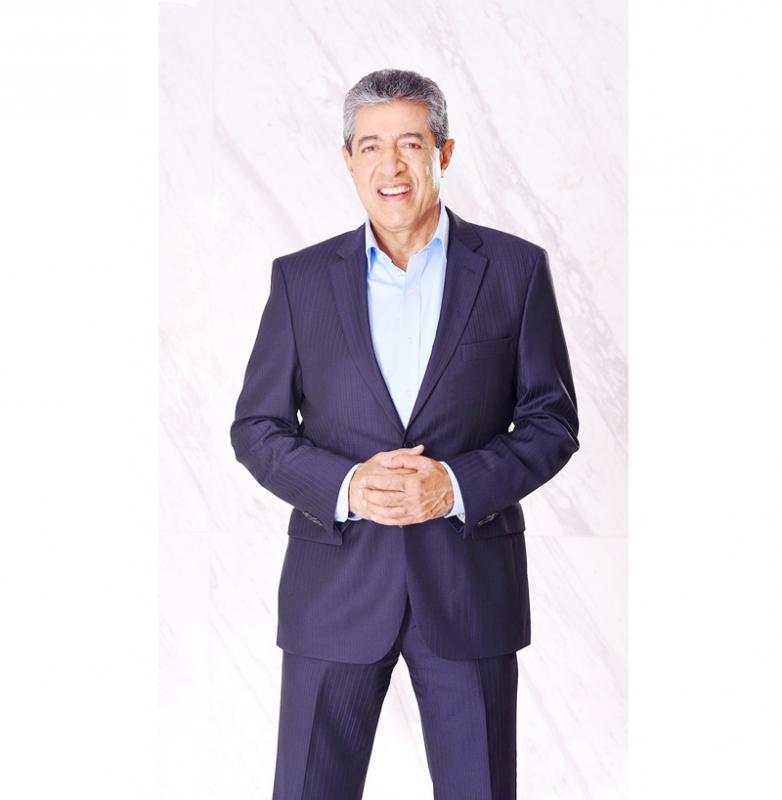Citibank Taiwan Ltd’s (台灣花旗) board of directors yesterday elected Aftab Ahmed, a former Citi country officer (CCO) for the Philippines, as the bank’s new chairman, pending regulatory approval.
Aftab is to take over the position from Paulus Mok (莫兆鴻), who last month announced that he would on Friday next week retire as chairman and CEO.
Aftab, a Citi veteran of more than 40 years, has previously worked as Citi Taiwan’s global consumer banking operations and technology head, and thus has a good understanding and knowledge of the local market.

“Taiwan is one of Citi’s most important markets in the region where we have a market leading institutional franchise and a strong commitment to responsible and sustainable growth. I look forward to Aftab building on this strong franchise and supporting our clients further,” Citibank North and East Asia head Tim Monger said.
Aftab said: “We are grateful for Paulus’ 28-year contribution to Citi. Under his leadership, Citi Taiwan has consistently delivered strong results and has been smoothly moving forward with the GCB Divestiture. I look forward to building on this legacy and supporting our clients as we are committed to further growth in Taiwan.”
Paulus said: “Citi Taiwan has the best talent in the market. With this top-notch team, and Aftab’s more than 40 years of extensive experience gained from regional management, technology and business, Citi Taiwan will continue to shine.”
Under Paulus’ leadership, Citi Taiwan successfully helped clients achieve sustainable growth and laid a solid foundation with an environmental, social and corporate governance strategy as a core competitive advantage.
Citi was named the Best International Bank in Taiwan by FinanceAsia for 26 consecutive years and the Best International Bank by The Asset magazine for 19 consecutive years.
Citi was also consistently named Best Bank by Euromoney and Best International Bank by Asiamoney.
Aftab has held a number of senior roles at Citi including country officer and CEO for Egypt, country officer and CEO for Hungary, consumer country business manager for Pakistan, corporate bank head for New Zealand, branch expansion director in New York, consumer finance head and regional sales development director in Singapore, and consumer banking operations and technology head for Germany.
In his business and leadership roles in multiple locations, Aftab has been extensively involved in and has successfully contributed to country and regional initiatives to grow franchises, expand the branch footprint, increase the customer base and deepen relationships, and protect and grow portfolios.
Aftab believes that leadership is not just about leading people to achieve goals and deliver results, it is also about mentoring, and contributing to the growth and development of his team.
Since the opening of the first representative office in 1964, Citi has been present in Taiwan for close to 60 years. Citi is the largest foreign bank in Taiwan, and counts more than 700 multinational corporations, more than 1,500 small and medium-sized enterprises and more than 100 top local companies among its clients.
Citi is to continue to focus on clients’ needs, support local market development and foster sustainable growth in the corporate sector.

GROWING OWINGS: While Luxembourg and China swapped the top three spots, the US continued to be the largest exposure for Taiwan for the 41st consecutive quarter The US remained the largest debtor nation to Taiwan’s banking sector for the 41st consecutive quarter at the end of September, after local banks’ exposure to the US market rose more than 2 percent from three months earlier, the central bank said. Exposure to the US increased to US$198.896 billion, up US$4.026 billion, or 2.07 percent, from US$194.87 billion in the previous quarter, data released by the central bank showed on Friday. Of the increase, about US$1.4 billion came from banks’ investments in securitized products and interbank loans in the US, while another US$2.6 billion stemmed from trust assets, including mutual funds,

Micron Memory Taiwan Co (台灣美光), a subsidiary of US memorychip maker Micron Technology Inc, has been granted a NT$4.7 billion (US$149.5 million) subsidy under the Ministry of Economic Affairs A+ Corporate Innovation and R&D Enhancement program, the ministry said yesterday. The US memorychip maker’s program aims to back the development of high-performance and high-bandwidth memory chips with a total budget of NT$11.75 billion, the ministry said. Aside from the government funding, Micron is to inject the remaining investment of NT$7.06 billion as the company applied to participate the government’s Global Innovation Partnership Program to deepen technology cooperation, a ministry official told the

AI TALENT: No financial details were released about the deal, in which top Groq executives, including its CEO, would join Nvidia to help advance the technology Nvidia Corp has agreed to a licensing deal with artificial intelligence (AI) start-up Groq, furthering its investments in companies connected to the AI boom and gaining the right to add a new type of technology to its products. The world’s largest publicly traded company has paid for the right to use Groq’s technology and is to integrate its chip design into future products. Some of the start-up’s executives are leaving to join Nvidia to help with that effort, the companies said. Groq would continue as an independent company with a new chief executive, it said on Wednesday in a post on its Web

Taiwan Semiconductor Manufacturing Co (TSMC, 台積電), the world’s leading advanced chipmaker, officially began volume production of its 2-nanometer chips in the fourth quarter of this year, according to a recent update on the company’s Web site. The low-key announcement confirms that TSMC, the go-to chipmaker for artificial intelligence (AI) hardware providers Nvidia Corp and iPhone maker Apple Inc, met its original roadmap for the next-generation technology. Production is currently centered at Fab 22 in Kaohsiung, utilizing the company’s first-generation nanosheet transistor technology. The new architecture achieves “full-node strides in performance and power consumption,” TSMC said. The company described the 2nm process as